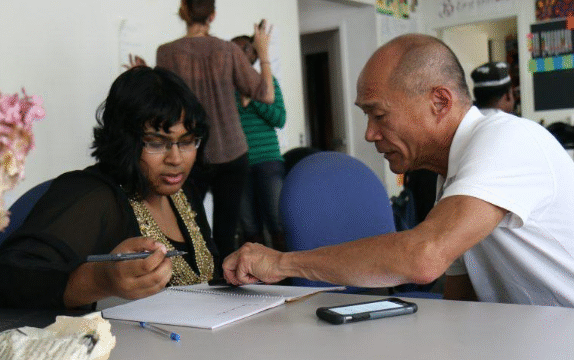When people put time and effort into earning a learning
certificate, one of the first questions that comes to mind
is how long that certificate will remain valid. Some assume
a certificate is permanent proof of their achievement, while others worry it might lose value after a certain period. The truth is that whether a learning certificate expires depends on the type of program, the industry it relates to, and the organization that issues it. Understanding these differences can help you make the most of your certificate and plan ahead if renewal is ever required.
Learning certificates are designed to demonstrate that you have completed training or education in a specific subject area. They act as official recognition of skills you gained, whether that is in technology, healthcare, education, or professional development. While diplomas or degrees are typically valid for a lifetime, certificates can work differently because they are more closely tied to evolving knowledge and up-to-date practices.
Some certificates never expire. These are often certificates earned from short-term courses, online programs, or workshops that focus on foundational skills. For example, if you completed a certificate in public speaking, creative writing, or introductory design, the knowledge is still useful even years later. The certificate simply confirms that you went through the training, and it will remain part of your academic and professional record for as long as you keep the document. Employers and institutions usually treat these as permanent achievements, similar to how they view transcripts or degrees.
On the other hand, many professional fields rely on certificates that do expire or need renewal. This is especially true for industries where regulations, technology, and best practices change quickly. Healthcare and information technology are two prime examples. A healthcare professional might need to renew certification every two or three years to prove they are still up to date with the latest medical guidelines. In IT, certifications for areas like cybersecurity or cloud computing often have expiration dates because new software and security standards appear constantly. Renewing ensures that certificate holders stay relevant and capable in their roles.
The organizations that issue certificates usually set the rules about validity. Universities, training platforms, and professional associations each decide how long their certificates last. When you earn a certificate, it is wise to review the fine print or the program’s website. Some institutions state clearly that the certificate has no expiration date. Others explain that the certificate is valid for a certain number of years, after which you must complete continuing education or retake the exam to keep it active. In professional fields, this process is sometimes called recertification.
Renewal requirements are not always the same. Some programs ask you to complete a shorter refresher course, while others require ongoing professional development activities or even full re-examination. For example, a teacher with a language teaching certificate might need to take updated workshops to maintain their credentials, while a project manager might need to document a certain number of work hours in the field plus continuing education credits. These steps are designed to balance convenience with the need for staying current.
For learners, the possibility of expiration is not necessarily a drawback. It can be seen as an opportunity to refresh skills, discover new tools, and maintain professional growth. Industries that update their certificates show commitment to quality and safety, which in turn helps employers and clients trust the people who hold those certificates. It is reassuring to know that a certificate is not just a one-time achievement but part of a continuous learning journey.
If you are considering earning a certificate, think about how you plan to use it. If your goal is personal growth or exploring a hobby, expiration is not usually an issue, because those certificates tend to last indefinitely. If your goal is career advancement or meeting professional requirements, look carefully at the renewal policies. Ask yourself whether you are willing and able to complete the updates when the time comes. Doing so will prevent surprises later on and will help you keep your credentials strong.
Employers also view certificate expiration in different ways. For job applications, a permanent certificate can be listed confidently as part of your qualifications. For time-limited certificates, however, employers may look for proof of current validity. For example, if a job description requires an active safety training certificate, the hiring team will likely request the most recent version. This means that keeping your certificates up to date can directly impact your opportunities for employment or advancement.
Storing and maintaining certificates is another part of the process. Even if your certificate does not expire, keeping a clear digital and physical record ensures you can access it when needed. Some institutions now provide digital badges or online verification systems that make this even easier. For certificates that require renewal, these systems often track expiration dates and send reminders, which helps learners stay on top of deadlines.
It is also worth noting that the recognition of a certificate can change over time, even if the certificate itself does not have a printed expiration date. For example, a certificate from a training provider that later closes may become less meaningful to employers. Similarly, a certificate in a technology that is no longer widely used may not hold the same value in today’s job market. This does not mean your effort was wasted, but it highlights the importance of continuing to learn and possibly earning additional certificates as industries evolve.
In summary, not all learning certificates expire, but many do. Permanent certificates typically come from programs that focus on broad knowledge or general skills, while renewable ones are tied to industries where up-to-date information is critical. Understanding these differences helps you plan your learning path wisely. Whether permanent or renewable, every certificate adds value to your personal and professional journey by showing your commitment to learning and growth. By staying aware of validity periods, renewal options, and industry expectations, you can ensure that your certificates remain useful and respected for years to come.
Learning is a lifelong process, and certificates are milestones along that road. They mark the progress you have made and the expertise you have gained. Even if some certificates come with expiration dates, the knowledge and confidence you build through them last much longer. The most important step is not just earning the certificate but continuing to apply and expand what you have learned. In this way, you ensure that your investment in learning remains valuable throughout your career and beyond.






